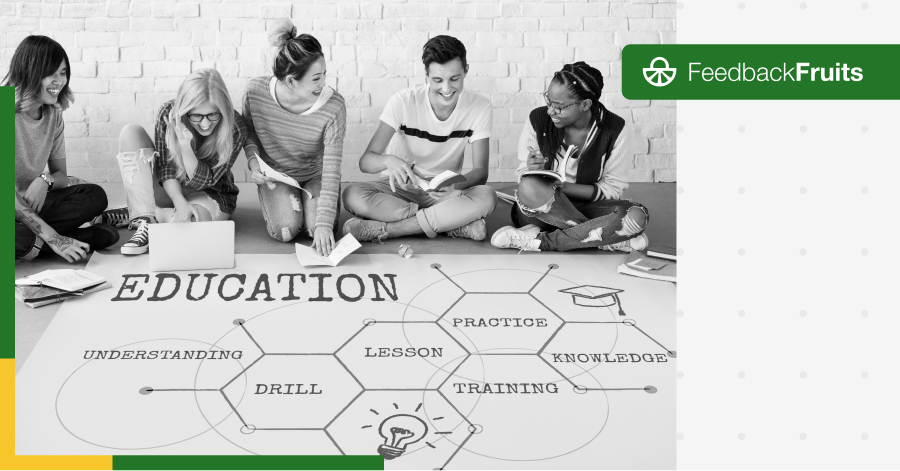"For this project, you will be working in groups" is an instruction we all have heard in university life. As more and more universities realize the importance of skills like teamwork, conflict management and interpersonal communication, we see group work becoming a prominent denominator in higher education.
Students dread group work because they know that not every member contributes equally. Some will take on more work to make up for those who free-ride knowing everybody will end up with the same grade.
Open communication and feedback can control free-riding to some extent. But because confrontation can be awkward, the other group members just accept this as the inevitable consequence of working in a group.
Research shows that students evaluating each other, a key part of collaborative learning, encourages them to reflect deeply on their skills and contribution in a group setting and take a more active role in their learning. When a teacher gives feedback, the students accept it for what it is. But when they hear feedback from their peers, the students would try to challenge it. And in the process, they are able to cultivate skills like critical-thinking and problem solving.
While receiving feedback from peers improves the depth of learning, the process of giving feedback also builds on skills like collaboration, coaching and debate.
Considering the frequency of group projects and the value of giving/receiving feedback, adding structure to the evaluation process has a clear use case in higher education.
The Group Member Evaluation tool facilitates this reflection by getting students to evaluate each others’ contributions anonymously against a set of criteria set by the teacher. The teachers oversee the quality and quantity of feedback being given and intervene when needed.
But this is where it gets interesting. This tool also allows group grades to be personalized based on individual contribution. It does this through an algorithm that compares ratings each student receives with the average of the group. Based on this ratio, a grade is calculated which reflects their individual contribution. By doing this, overachievers are rewarded and underachievers are penalised.
By putting a numerical value to individual contribution of group members this way, free-riding is eliminated. Supplementing this learning activity with self-assessment can help students spot discrepancies between how they view their own efforts and how they are perceived by others. This further improves their performance in future group projects.
This functionality (group contribution factor) was co-created with Tiffany Gunning from our EdTech DoTank partner, Deakin University.

Explore how to best implement active learning strategies with deep understanding of different modalities

FeedbackFruits announces partnerships with many institutions worldwide over the past 4 months

An overview of the state of competency-based education (CBE) in higher education around the world